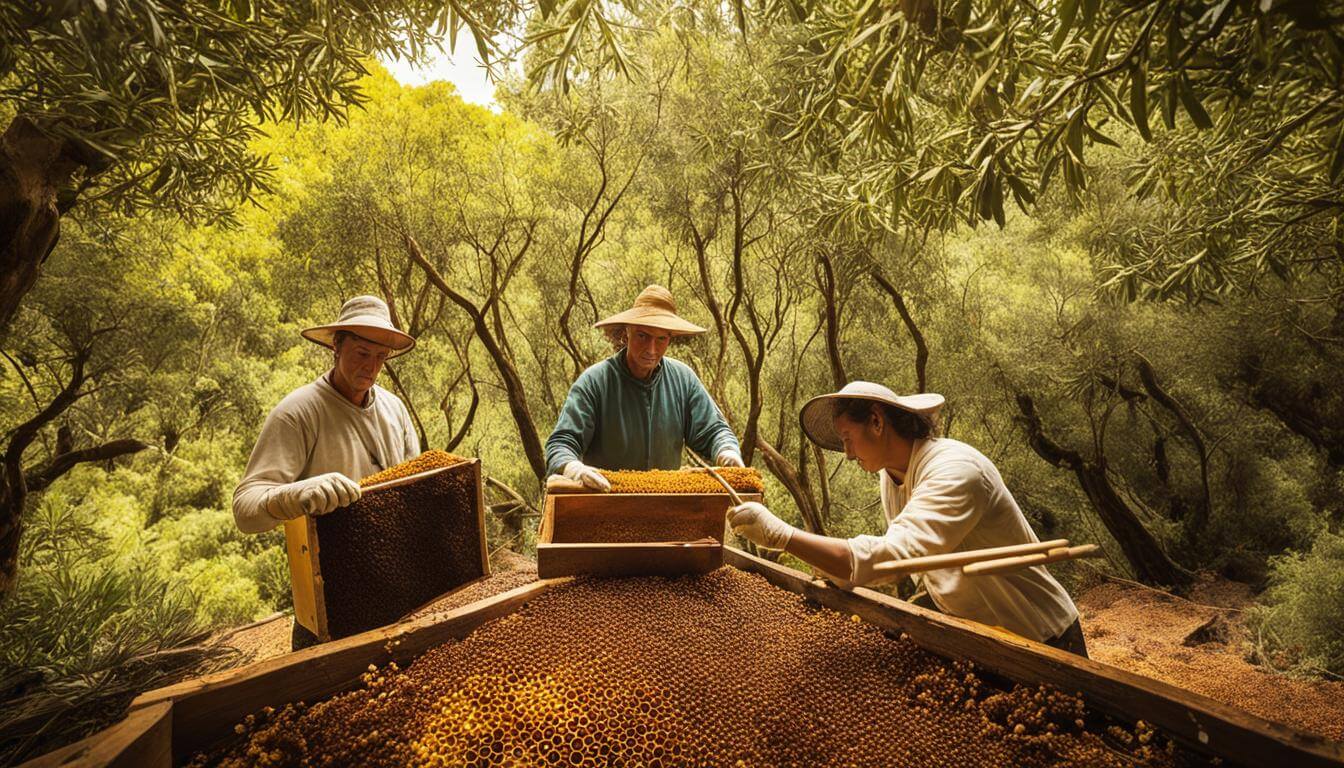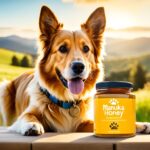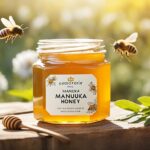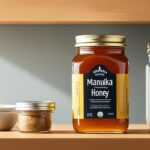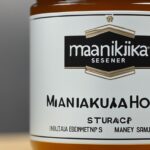Unbeknownst to many, the ancient use of manuka honey has traveled through the annals of time as more than just a sweetener. This unique nectar, hailed for its distinctive flavor and medicinal qualities, claims a fabled history dating back centuries. Manuka, a name that resonates with natural healing and traditional remedies, has woven its golden threads throughout generations. We invite you on an exploratory journey through the historical honey remedies that have perpetuated Manuka Honey’s status as a panacea in cultures far and wide.
Envision a world where natural remedies reign supreme, and honey is a revered elixir. From the lush landscapes of New Zealand to the storied pasts of ancient civilizations, Manuka Honey has not just sweetened the palate but has doctored the ailing and complemented spiritual practices. As we uncover the narrative of this illustrious sweetener, ask yourself: could the key to contemporary health breakthroughs lie in the wisdom of the ancients? Embark on this chronicle to discover the enduring legacy of nature’s own golden healer.
What is Manuka Honey and its Unique Properties
Manuka Honey, a treasure from New Zealand, stands out in the world of honeys due to its extraordinary qualities and the unique benefits it delivers. Sourced from the nectar of the Manuka bush (Leptospermum scoparium), this honey isn’t your ordinary sweetener. Its rich, earthy taste conceals a powerful combination of naturally occurring compounds that contribute to its acclaimed health properties.
Central to the unique benefits of Manuka Honey is Methylglyoxal (MGO), an organic compound with potent antibacterial properties, which is largely responsible for the honey’s unparalleled antibacterial power. Unlike most other honey varieties, Manuka Honey contains high concentrations of MGO, directly linked to its efficacy in fighting off bacteria.
Another exceptional aspect of Manuka Honey is Hydrogen peroxide, which is produced when the enzyme glucose oxidase—added by bees—comes into contact with the honey’s glucose. It provides an antiseptic quality to the honey, contributing further to its therapeutic use. However, it’s the stability of MGO within Manuka Honey that maintains the antibacterial strength, even when hydrogen peroxide activity is negated in the presence of serum and tissue.
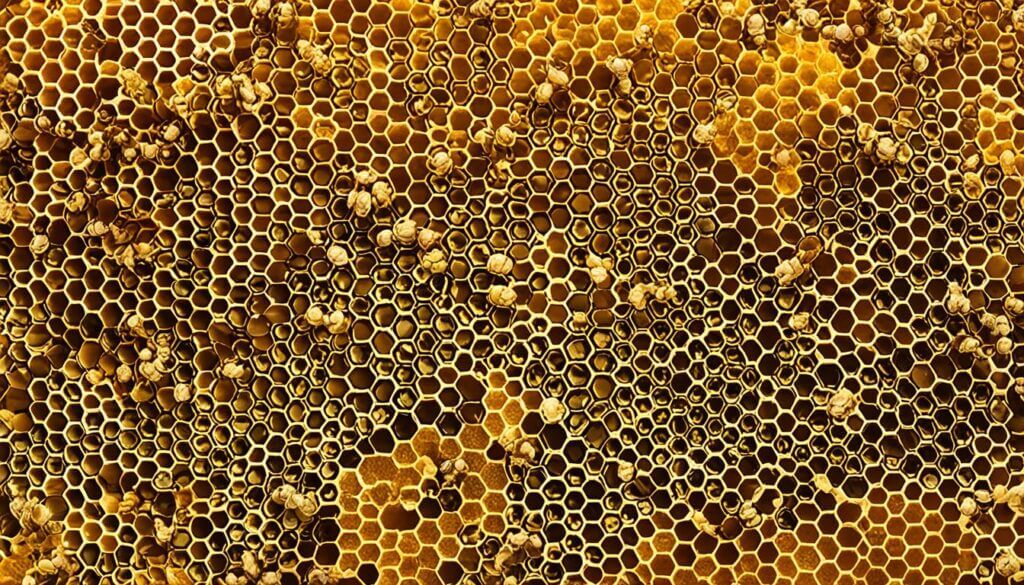
To appreciate what sets Manuka Honey apart, it’s critical to understand the rigorous certification process it goes through. The Unique Manuka Factor (UMF) is a global standard in identifying and rating the genuine potency of Manuka Honey. The higher the UMF rating, the greater the presence of key signature compounds like Leptosperin, DHA, and, most notably, MGO.
- MGO: The Marker of Potency – Methylglyoxal levels can range significantly, with high-grade Manuka honey boasting concentrations much higher than found in other forms of honey.
- Hydrogen Peroxide: Healing Catalyst – This factor contributes to the honey’s ability to support wound healing processes and maintain a sterile environment for skin repair.
- Antibacterial Qualities – The synergistic effect of MGO and Hydrogen peroxide renders Manuka Honey exceptionally effective against a broad spectrum of bacteria.
It is worth noting that these elements combine to provide the unique benefits of Manuka Honey—be it in supporting digestive health, skincare regimes, or immunity boosts. Adhering to the high standards set by UMF ensures that what reaches the consumer is not only potent but also authentic. Genuine Manuka Honey is a natural marvel that embodies nature’s complexity and its bountiful wellness offerings.
Manuka Honey in Maori Traditions
Steeped in centuries-old traditions, the Maori people of New Zealand have long revered Manuka honey not only as a food source but as a potent form of Maori healing. Regarded as Taonga, which translates to a treasured possession, Manuka honey has occupied an esteemed space within Rongoā Māori — the traditional Maori system of medicine.
Rongoā Māori is an intricate tapestry of natural knowledge where Manuka honey’s antiseptic and healing properties have been harnessed to treat a variety of ailments. From soothing sore throats and digestive issues to healing wounds and skin conditions, Manuka honey has been an indispensable component of Maori herbal medicine. This practice reflects an understanding of the interconnectedness between people and nature, in which the healing solutions are drawn directly from the surrounding environment.
The ceremonial uses of Manuka honey in Maori cultural practices further illustrate its significance beyond physical wellness. It has been used in rituals to protect and purify, encapsulating the holistic nature of Taonga and underpinning the deep spiritual respect Maori people hold for this natural resource.

Beyond its historical context, contemporary Maori healers continue to advocate for the benefits of Manuka honey, ensuring that the knowledge of this precious gift of nature is passed down through generations. To convey the depth of Manuka honey’s role in Rongoā Māori, an outline of its applications is provided:
- Wound Care: A primary antiseptic treatment for cuts, abrasions, and infections.
- Digestive Aid: Used to soothe stomach ailments and bolster overall digestive health.
- Immune System Support: Incorporated into diets to strengthen immune defenses.
- Skin Health: Applied topically to treat conditions such as eczema and psoriasis.
- Spiritual Significance: Involved in ceremonial rites, offering purification and protection.
By embracing the traditional Maori understanding and utilization of Manuka honey, a holistic approach to wellbeing is cultivated — one that recognizes the role of natural remedies in sustaining physical, emotional, and spiritual health.
Manuka Honey in History: A Timeline
The historical timeline of manuka honey narrates a fascinating journey through the evolution of honey use and the longstanding value of ancient remedies. This timeline provides an illuminating path through the salient points in history where manuka honey not only thrived but also revolutionized the way we perceive natural healing solutions.
Below is a table that highlights some pivotal moments in the ascent of manuka honey from the wilds of New Zealand to its recognition as a valuable medicinal asset across the world.
| Time Period | Significant Event |
|---|---|
| Ancient times | Use of honey for medicinal purposes by early civilizations |
| 14th Century | Maori discovery of the unique properties of manuka bushes |
| 19th Century | European settlers learn about manuka honey’s benefits from Maori traditions |
| 1930s | Scientific research into antibacterial properties of honey |
| 1980s | Global recognition of manuka honey begins to emerge |
| 1990s | Development of the Unique Manuka Factor (UMF) grading system |
| Early 2000s | Extensive research validates the medicinal qualities of manuka honey |
| Present Day | Widespread usage in alternative medicine and holistic health circles |
This revelatory voyage through time showcases not only manuka honey’s enduring efficacy as one of nature’s most potent remedies but also underscores its unchanged relevance in contemporary health and wellness.
Traditional Uses of Manuka Honey in Natural Medicine
Manuka honey has long been revered for its therapeutic properties, forming a cornerstone of natural treatments in various cultures. Its remarkable success as a holistic remedy is grounded in centuries-old wisdom, which has transitioned seamlessly into the practices of alternative medicine with honey. Unpacking the traditional uses of Manuka honey offers fascinating insights into how this natural resource has been harnessed for health.
One of the flagship uses of Manuka honey is in wound care. The healing properties attributed to it stem from its naturally occurring antibacterial agents that provide a protective barrier and aid in tissue regeneration. The following list details some of the key traditional applications for Manuka honey in the realm of natural medicine:
- Topical application for cuts and burns, taking advantage of its antimicrobial properties.
- Consumption to soothe sore throats and assist in the recovery from colds and flu due to its antimicrobial and antioxidant qualities.
- Integration into dietary practices focused on improving digestive health, as Manuka honey is believed to combat harmful bacteria in the gut.
- Use as a natural boost for the immune system given its array of vitamins, minerals, and antioxidants.
The incorporation of Manuka honey into daily wellness routines exemplifies its versatility and enduring belief in its efficacy. Below, a comprehensive table showcases the wide-ranging applications of Manuka honey in treating various conditions:
| Condition | Manuka Honey Application | Traditional Belief |
|---|---|---|
| Wound Healing | Topical Application | Accelerates healing, reduces infection risk |
| Digestive Issues | Daily Consumption | Alleviates symptoms, supports gut health |
| Oral Health | Gargling Solution | Improves oral hygiene, diminishes gingivitis |
| Immunity Boost | Regular Supplementation | Strengthen defenses against pathogens |
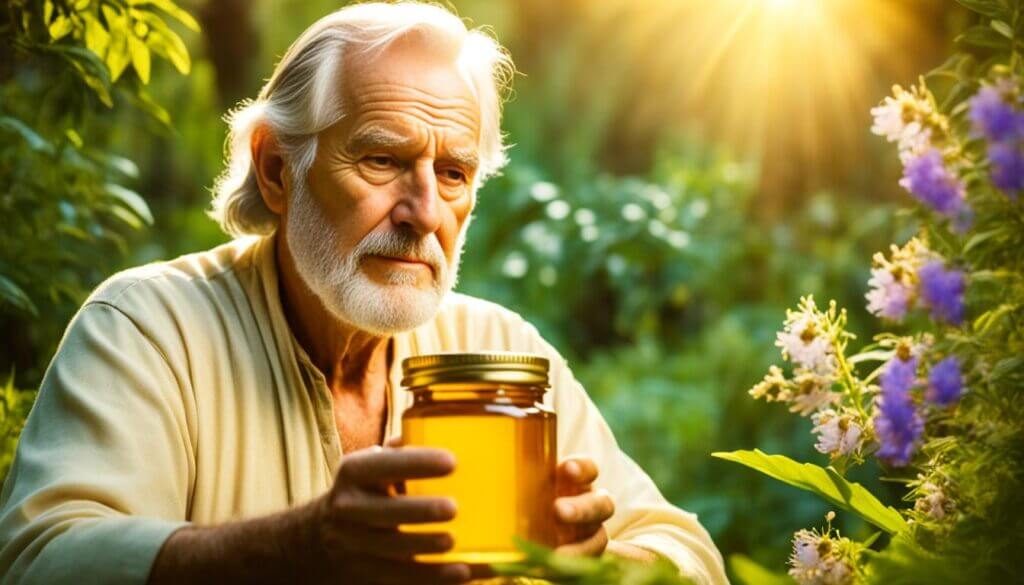
Adopting Manuka honey as part of a holistic approach to health can resonate with individuals searching for time-honored, natural remedies. Its elevation from a mere ingredient to a vital component in natural treatments is supported by countless testimonials of its efficacy stemming from age-old applications. The traditional knowledge surrounding Manuka honey continues to contribute significantly to its stature in alternative medicine today.
Commercialization and Global Recognition of Manuka Honey

The meteoric rise of Manuka honey from a local New Zealand specialty to a coveted commodity in the global honey market is a testament to its unique properties and the increasing consumer demand for natural, high-quality products. As the Manuka honey industry burgeoned, the introduction of the UMF™ grading system solidified its status in the global marketplace, providing a reliable measure of quality and purity that resonates with health-conscious consumers around the world.
Recognizing the distinctive components of Manuka honey, particularly its antibacterial qualities, industry experts devised the Unique Manuka Factor (UMF™), a quality trademark that ensures the honey’s authenticity and potency. This grading system has been pivotal not only in protecting consumers but also in enhancing the premium image of Manuka honey, enabling sellers to command higher prices and ensuring that producers adhere to rigorous standards.
- UMF™ Certification – A benchmark for quality and consumer trust.
- Global Distribution – Expansion into international health food markets and specialty stores.
- Regulated Production – Strict guidelines to maintain the integrity of the Manuka honey industry.
- Marketing Strategies – Emphasizing the provenance and natural origins to appeal to a global audience.
| UMF™ Grade | Antibacterial Level | Consumer Use |
|---|---|---|
| UMF™ 5+ | Low | Daily Health Maintenance |
| UMF™ 10+ | Medium | General Wellbeing |
| UMF™ 15+ | High | Therapeutic Uses |
| UMF™ 20+ | Very High | Medical-Grade |
The integration of Manuka honey into the broader market has also led to its adoption as an ingredient in skincare products, wound dressings, and nutritional supplements, further diversifying its applications and bolstering its global appeal. This versatility, backed by the UMF™ assurance, is driving the growth of the Manuka honey industry and cementing its reputation as a staple in both the pantry and the medicine cabinet.
As global appreciation for this unique honey continues to grow, so does the responsibility of producers and distributors to uphold the values and quality that the UMF™ represents. The commercial journey of Manuka honey is not simply one of market acceptance but also of the preservation and celebration of an ancient natural resource tuned to the needs of the modern consumer.
The Scientific Verification of Manuka Honey Benefits
The past decades have witnessed a burgeoning interest in research on manuka honey, positioning it as a natural product with significant healthcare applications. As the scientific community delves deeper into its medicinal properties, an increasing body of clinical studies on honey corroborates its efficacy. Let’s explore some of the research findings that underscore manuka honey’s potential in modern healthcare.
High-profile studies published in reputable medical journals have highlighted manuka honey’s antibacterial properties, attributing these in part to the presence of methylglyoxal (MGO). The compound is widely recognized for its ability to fight off bacteria, hinting at manuka honey’s role in combating infections resistant to standard antibiotics. Recent clinical trials have further extended our understanding of this honey’s therapeutic applications.
- Wound Healing: Manuka honey has been shown to promote healing in acute and chronic wounds, with research indicating its efficacy in enhancing tissue regeneration and suppressing infection.
- Digestive Health: Studies suggest that manuka honey may exert a prebiotic effect, encouraging the growth of beneficial digestive bacteria, and providing relief from symptoms of gastrointestinal disorders.
- Oral Health: In the arena of dental care, manuka honey’s application has been associated with a reduction in plaque formation and gingivitis, propelling its potential as an adjunctive dental hygiene measure.
Encapsulated within the following table are key findings from recent clinical studies on honey, particularly focusing on manuka variety:
| Study | Health Application | Outcome |
|---|---|---|
| Queensland University of Technology (2019) | Chronic Wounds | Significant reduction in wound size and bacterial presence. |
| University of Auckland (2020) | Sore Throats | Improved symptoms and a decrease in the severity of sore throats. |
| Waikato Hospital Research (2021) | Skin Infections | Enhanced healing of bacterial skin infections and reduction in healing time. |
These scientific affirmations render manuka honey a promising bioactive agent with diverse healthcare applications. It stands as an exemplary model where traditional remedies dovetail with modern medical research, making manuka honey a sweet subject of interest for ongoing and future studies.
The Economic Impact of Manuka Honey
The Manuka honey industry has emerged as a substantial contributor to economic growth, with its rare and therapeutic properties driving up demand and thus enhancing the export revenue for countries like New Zealand. This section examines the manifold economic benefits of Manuka honey, highlighting how this niche yet powerful segment has bolstered trade and national income.
Over recent years, the Manuka honey industry has seen exponential growth. The global fascination with wellness and natural products has amplified the appeal of Manuka honey, positioning it as a premium product in both healthcare and gourmet food industries. Consequently, this has brought about remarkable financial perks for exporting nations, predominantly New Zealand, which is the primary source of authentic Manuka honey.
The following data underscores the significant economic benefits of Manuka honey:
- Increased employment opportunities in apiculture and related sectors
- Heightened export revenues, with Manuka honey commanding higher prices internationally compared to standard honey varieties
| Year | Export Revenue | Percentage Growth |
|---|---|---|
| 2018 | $270 million | – |
| 2019 | $300 million | 11.1% |
| 2020 | $330 million | 10% |
These figures not only depict a consistent rise in Manuka honey export revenue but also point to the resilience and ongoing expansion of the market. The robust growth is a testament to the product’s increasing prominence on a global scale, and this traction suggests a bright future for the Manuka honey industry.
With the anticipated continued growth of the Manuka honey market, it is evident that this unique natural resource holds significant potential for contributing to a nation’s economy. It stands as an emblem for how traditional products can adapt and thrive within contemporary markets, generating sustainable financial inflows and fostering industry development.
Manuka Honey in Modern Culinary Arts
With a growing trend towards health-conscious cooking, Manuka honey recipes have carved out a niche in gourmet honey cuisine. Top chefs and food aficionados are incorporating this luxurious ingredient into a variety of dishes that cater to a refined palate and a healthy lifestyle.
The distinctive taste of Manuka honey makes it a versatile companion in the kitchen, with the ability to complement savory dishes while also enhancing the sweetness in desserts. Fresh salads drizzled with a Manuka honey vinaigrette or succulent meats glazed in a Manuka honey marinade are shining examples of its culinary diversity.
- Manuka Honey Glazed Carrots
- Spiced Manuka Honey Chicken
- Manuka Honey and Ginger Ice Cream
- Oatmeal with Manuka Honey and Fresh Berries
Enthusiasts of health-conscious cooking appreciate Manuka honey not just for its flavor profile, but also for its reputed health benefits. As Manuka honey recipes become more widespread, its place in nutrition-filled diets is cemented, giving food lovers a reason to indulge with a sense of wellbeing.
A truly gourmet experience now extends beyond traditional ingredients, as Manuka honey brings the essence of New Zealand’s rich floral landscapes to dining tables around the world. From an ordinary breakfast to a luxurious five-course meal, Manuka honey elevates simple ingredients, leaving a memorable taste that keeps diners longing for more.
Conclusion
As we’ve journeyed through the annals of time and traced the path of Manuka Honey from its origins to the table of modern consumers, we can see that its legacy of manuka honey is not just about a sweet natural product but a testament to the enduring wisdom of traditional remedies. With its roots deep in the heart of Maori healing practices, Manuka Honey has transcended its cultural cradle to emerge as a beacon of preserving traditional remedies in our rapidly changing world.
Today, as health enthusiasts and medical practitioners alike seek out alternatives to conventional medicine, the future of natural medicine looks bright, with Manuka Honey leading the vanguard. Its scientifically proven benefits and growing global demand signal a promising future where once estoric knowledge flows into the mainstream, delivering natural healing properties to a wider audience. As we embrace holistic approaches to health, Manuka Honey stands as a bridge between the past and the future, its multifaceted value capturing the best of both worlds.
In respecting the legacy and eyeing the horizon, the task ahead is clear—nurture the bond between humanity and the natural world by preserving traditional remedies such as Manuka Honey. By honoring the knowledge of our ancestors and supporting sustainable practices, we can ensure that this golden elixir continues to be a cherished resource for generations to come. The journey of Manuka Honey is far from over; in fact, we may stand on the edge of new discoveries and applications that could redefine our relationship with nature’s delectable healer.
